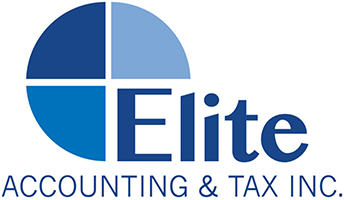Bookkeeping plays a vital role in every business, and for small businesses in particular, proper and timely bookkeeping helps ensure that you remain financially viable. Initially, owners typically double as the bookkeeper. However, as your business grows, you may find you are no longer left with enough time to take care of administrative tasks such as bookkeeping. When this happens, you may consider outsourcing your bookkeeping and accounting tasks to a CPA firm like Elite Accounting & Tax.
Now, whether you’re doing your own bookkeeping or outsourcing it, we have some important bookkeeping tips for you!
1. Keep records and receipts of every payment made and received
Keep detailed records of all payments made and received in your books so that you can readily retrieve them when you need to.
2. Mind your deadlines
Whether it’s you who have payment deadlines or it’s you setting deadlines for customers and clients, you must ensure that deadlines are met. Pay your dues on time. Set up reminders for your customers and clients. Take note of habitual late payers, then reconsider if you’d still continue working with them. Being strict with deadlines will ensure a healthy cash flow for your business.
3. Track your business expenses
Many business expenses qualify for tax deductions, which can help you lower your overhead. Receipts are required to support your claims. Keep your receipts and invoices organized. As much as possible, categorize them accordingly.
Furthermore, make sure to separate business and personal expenses, so you can quickly determine which ones can be deducted from business profits to lower taxes.
4. Prepare monthly reports
The best approach to remain on top of your company’s finances and avoid unpleasant surprises is to generate reports at least once a month. A balance sheet and a profit-and-loss statement should be included in your monthly reports at the very least. You can now keep track of how well your company is doing in real time.
5. File statements, receipts, and invoices in order
Ensure that all bank statements and invoices (both sales and purchase) are accurate, present, and chronologically arranged. If not, you’ll have to compensate your bookkeeper for the time spent looking for and organizing these records when you could easily do it yourself. Even worse, if records are lost, you can be penalized for submitting late.
6. Know when it’s time to outsource bookkeeping
If your company is small, it may make sense to do your own bookkeeping. Take note of how much time you spend on the books each week as you progress. Calculate the monetary worth of your own time (for example, how much you earn for the firm each hour) and compare it to the cost of a bookkeeper. A professional bookkeeper may just need a couple of hours to do a month’s accounting, so this will soon be better value.
Save Time and Money: Outsource Your Bookkeeping
Bookkeeping is not that hard. However, it’s time-consuming. It also requires focus and attention. For a small business owner like you, your time and effort are better spent growing your business. Outsourcing your bookkeeping helps you save time and money, and ensures that everything is accurate. Let’s talk about how our outsourced bookkeeping services can help you. Schedule a FREE initial consultation today!


